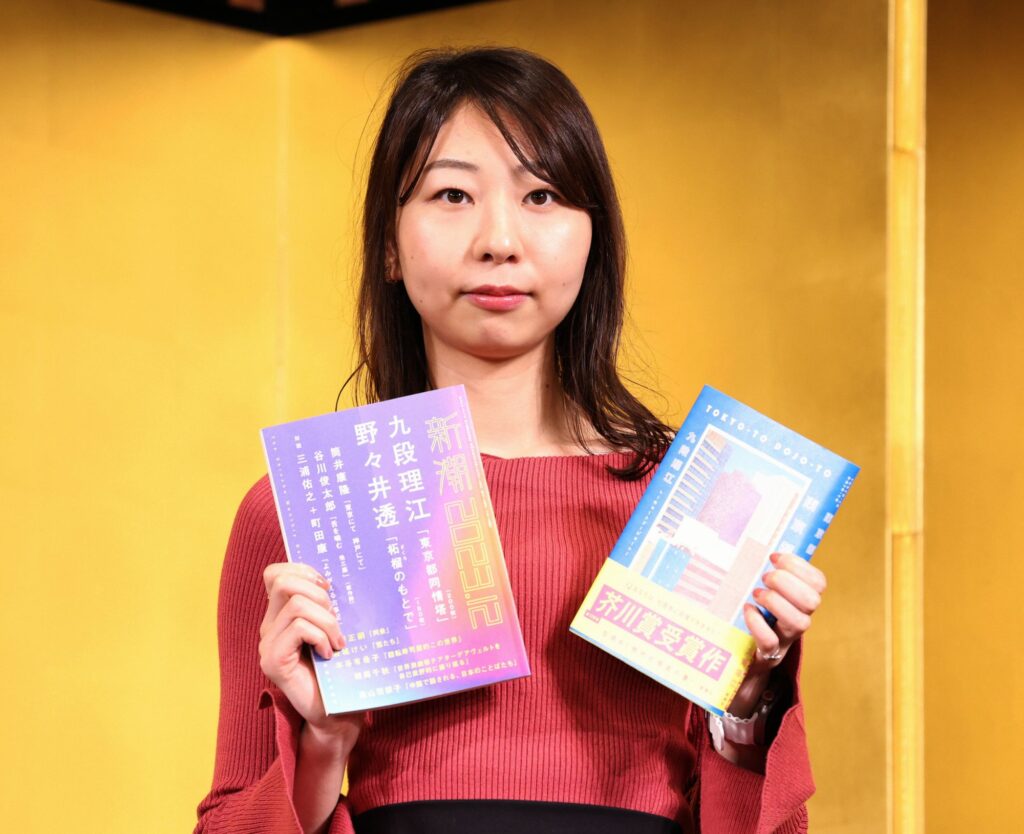Award-winning Author’s AI Revelation Rocks the Literary World
By Brylle Uytiepo • February 7, 2024
Award-winning Author’s AI Revelation Rocks the Literary World
Following her admission that she used generative artificial intelligence (AI) to produce her winning novel, Rie Kudan, the recent recipient of the prestigious Akutagawa Prize, has rocked the literary world in Japan. While some see AI as a game-changing tool for writers, others are skeptical of its effects on creativity and the threats it could represent to long-standing literary competitions.

“Sympathy Tower Tokyo” is the Winning Novel
The futuristic story “Tokyo-to Dojo-to” (“Sympathy Tower Tokyo”) by Rie Kudan is set in Tokyo, where generative AI is now widely used. The novel has caused controversy as Kudan disclosed that about 5% of the content was created by AI directly. It was awarded the 170th Akutagawa Prize for Emerging Authors in January.
AI’s Place in the Literary World
As a tool for artistic activities, generative AI—which uses machine learning to create writing, graphics, and other content—has grown in popularity. Regulating its use has been discussed, though, due to worries about potential misuse, misleading information spreading, and intellectual property rights violation.
Due to Kudan’s disclosure, discussions on literature have erupted in Japan, with opposing viewpoints overflowing social media. The subject has garnered global interest, as well, with prominent news outlets like CNN covering it. The widespread interest draws attention to the developing form of artistic expression and the larger implications of AI in creative processes.
Handling the Debate: Kudan’s Explanations
Kudan responded to the criticism by explaining that she had used AI-generated text into certain speech passages, making sure it flowed naturally with the story. She dismissed worries about how the AI-contributed content might affect the cohesion of the plot, emphasizing that it made up a very minor portion of the entire book.
Although Kudan’s work may not be in doubt, industry insiders expect submission guidelines to evolve to accommodate AI’s role in literary works. Editors voice a desire for openness, advising writers to notify publishers ahead of time if artificial intelligence is used in the writing process. The difficult part is figuring out which works are entirely human-made and which ones are helped by AI.
AI in Rules Adaptations and Science Fiction
AI is having an impact on genres other than traditional literature, such as science fiction, for which the Hoshi Shinichi Award has established special requirements for submissions of AI-generated material. These guidelines stress the significance of keeping thorough records of the creative process and forbid the publication of AI-generated material without substantial changes.
Akira Okawada, a literary critic, notes that a lot of writers already use AI as a source of inspiration and structural direction. Although acknowledging AI’s potential, Okawada stresses that technology cannot yet match human writers’ skill at the subtle investigation of ethical problems. The future of literary expression is called into doubt by the coexistence of AI and human creativity.
Author’s Viewpoint: Living with AI
Kudan’s book explores the relationship between language and humans by going beyond standard ethical viewpoints. Even though Kudan uses AI in her creative process, she seems comfortable with the way AI and humans interact. She highlights the enduring nature of human creativity by stating her persistent desire to write even in the unlikely event that AI produces greater text.
After Rie Kudan’s discovery, the literary community in Japan is still debating the effects of incorporating AI into the creative process. The continual growth of the link between technology and artistic expression is highlighted by the debate surrounding ethical considerations, the need for openness, and AI’s impact on literature.


